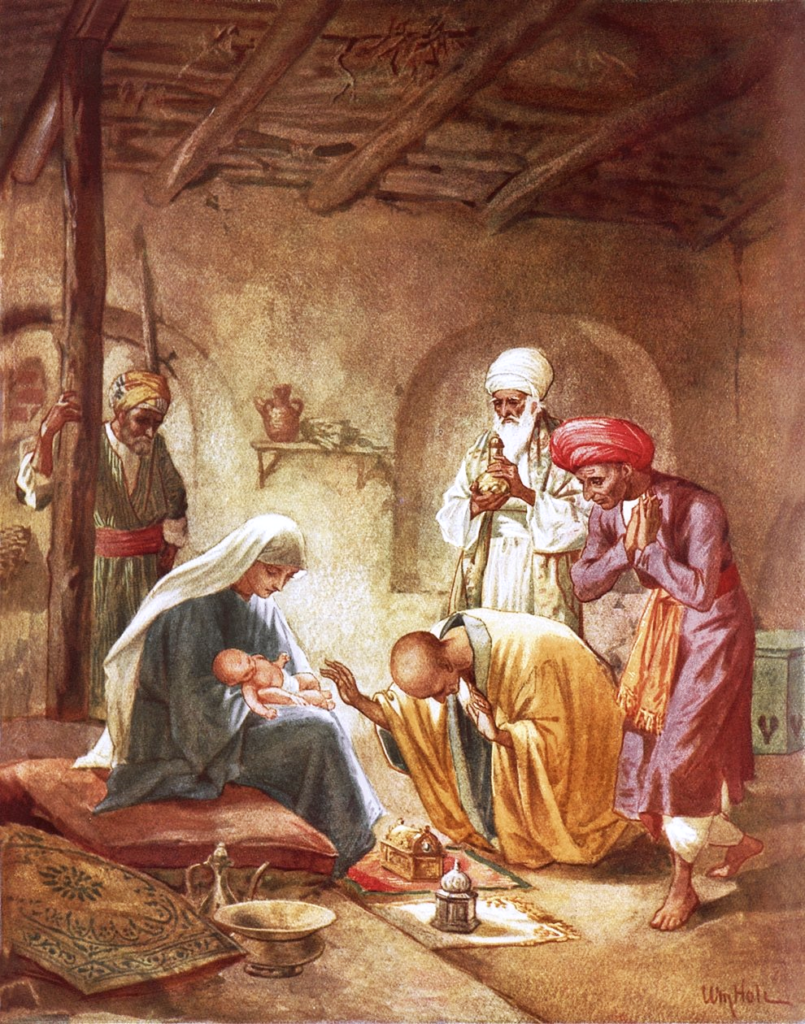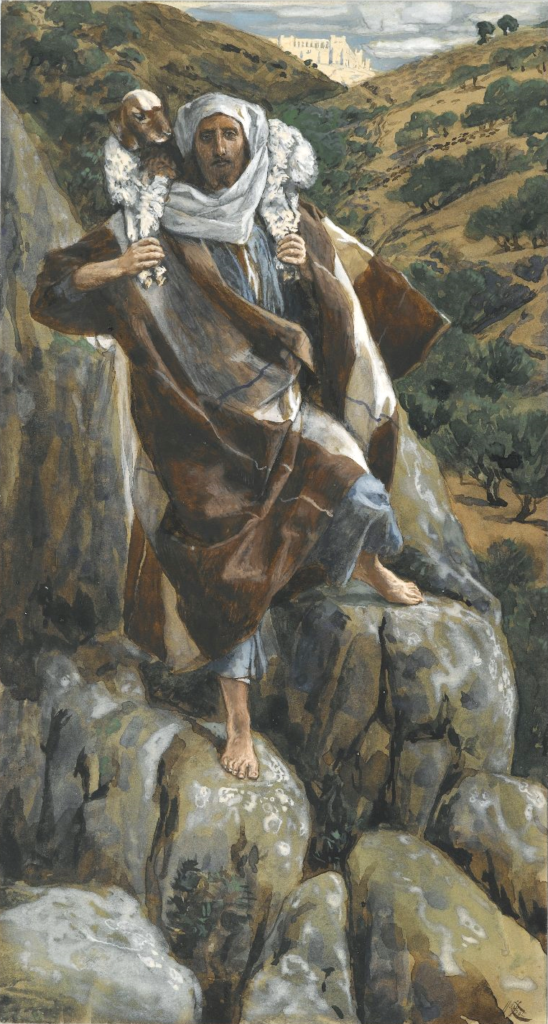Translation of the Epistle for the 14th Sunday After Pentecost

Russian, 18th century
Brethren, walk in the spirit, and you shall not fulfill the lusts of the flesh: for the flesh lusts against the spirit, and the spirit against the flesh; for these are contrary one to another; so that you do not the things that you would. But if you are led by the spirit, you are not under the law. Now the works of the flesh are manifest, which are fornication, uncleanness, immodesty, luxury, idolatry, witchcrafts, enmities, contentions, emulations, wraths, quarrels, dissensions, sects, envies, murders, drunkenness, revellings, and such like: of which I foretell you, as I have foretold to you, that they who do such things, shall not obtain the kingdom of God. But the fruit of the Spirit is charity, joy, peace, patience, benignity, goodness, longanimity, mildness, faith, modesty, continency, chastity. Against such there is no law. And they that are Christ’s have crucified their flesh with the vices and concupiscences.
Continuation of the Holy Gospel, According to St. Matthew
At that time Jesus said to His disciples: No man can serve two masters; for he will hate the one and love the other, or he will sustain the one and despise the other. You cannot serve God and mammon. Therefore I say to you, be not solicitous for your life, what you shall eat, nor for your body, what you shall put on. Is not the life more than the meat, and the body more than the raiment? Behold the birds of the air; for they neither sow nor do they reap, nor gather into barns, and your heavenly Father feeds them. Are you not of much more value than they? And which of you, by taking thought, can add to his stature one cubit? And for raiment, why are you solicitous? Consider the lilies of the field, how they grow; they labor not, neither do they spin: but I say to you, that not even Solomon in all his glory was arrayed as one of these. Now if God so clothe the grass of the field, which is today, and tomorrow is cast in the oven, how much more you, O ye of little faith! Be not solicitous therefore saying: What shall we eat, or what shall we drink, or wherewith shall we be clothed? for after all these things do the heathen seek. For your Father knows that you have need of all these things. Seek ye therefore first the kingdom of God, and His justice; and all these things shall be added unto you.
The Saving Words of the Gospel.
In the Name of the Father, and of the Son, and the Holy Ghost. Amen.
No man can serve two masters.
Transcription of Sermon
Transcription of Sermon
Our Lord is clear in His demand of totality. He wants our service of Him, our adhesion to Him, to be absolute and He doesn’t want us to have a close number-two. He doesn’t want to be number-one in a series of loves. He wants to be everything. Everything. Not because He’s needy, but because He knows what we need. He’s not attention-starved. He knows that we have a bad attention span, and we are all pretty good at sharing our hearts with many things, not all of which are submitted to Him.
We can easily fool ourselves that, well, I do good things. I must be a good person. There are people who, perhaps, are professional musicians, or thinkers and writers, people dedicated to philosophy, people dedicated to good works (and we would expect good works from those that belong to Christ), but there’s a certain order in these events.
Aristotle says that acts follow essence. In other words, what we are determines what we do. Well, you’ve probably heard people say, “I’m spiritual, not religious.” That’s tantamount of saying, “I have a body, but I don’t take a bath.” There’s no merit in having a body. There’s no merit in being spiritual. That’s our nature. That’s what we are. We were made for worship, though. And this worship is not something that we can come up with adequately. It’s nothing of our own doing. True worship…. If man is spiritual, man is religious by nature. Pagans, Jews, Muslims, atheists, everyone is spiritual by nature. This is proper to our nature. But thanks to original sin, we’ve lost the ability to worship properly.
And so, we need, we needed the Incarnation, we needed Christ to give us the Last Supper in order to insert Himself into our own milieu and allow us to participate in the one act of worship that is pleasing to God, which is the Eucharist. One of you here today will be making his First Communion and this is a big day not only for him, for a little follower of Christ, but is a big day for Christ and all of Heaven as they participate in this. We were made for this. We were made to worship and Our Lord doesn’t want us to be schizophrenic in the sense that we leave our worship here in Church.
Rather, the things that we do afterwards, what we read, what we do for our hobbies, what we do for work, what we do in our relations with others, our thoughts, what I look at when I’m online, all of this ought to be in function of worship, unless I’m imposing a form of schizophrenia on myself. So, all of that flows from our true act of worship of participation in the Eucharist. And that’s why Our Lord says we cannot serve two masters.
He doesn’t say we can’t be employed by multiple masters. He says we can’t serve two masters. So, those people that I mentioned before, musicians, artists, thinkers, workers, laborers, that’s their job. And work, as we know, existed before the Fall. So, work is not a punishment resultant from original sin. It’s a way of worshiping in-as-much as it is joined to the Eucharist and flows from it as an emanation of this one act of worship. And so, this is what saves us from fragmenting ourselves, being disparate, going in separate directions.
How do we protect our hearts for Christ when the things that we do, perhaps in our free-time, or for some people, those fortunate ones that love their work, when those make a claim on the heart, and we run the risk of serving that master? Well, that’s the importance of a morning offering, of offering our day to Our Lord. That’s the importance of thanking Him for His blessings, whether it’s employment, or the good material blessings that we have, the crosses that we have, and our hobbies offering up, doing them, thanking Him for them, offering them to Him. And this is the way we protect ourselves from disordered attachments; thanksgiving and offering.
When Christ says this word mammon, right, we can’t serve God and mammon. Mammon is this punic word for riches. And in Jerome’s Vulgate, he uses the Latin word divitiae. And divitiae is an interesting word because it has the same root as division. And this is exactly what happens when we have disordered attachments. Our Lord is not saying money → bad, possessions → bad. He’s saying they’re not our masters. We don’t serve them. They are to serve us and to serve God’s interests. And so, we put them at His service, at this one act of worship. And this is the danger, though, that we are not pure spirits. We have physical needs.
And Our Lord alludes to eating, and the clothing, and the things that we need for our bodies. And when they have too much of an importance in our lives, they bring about μεριμνατε – (merimnate / anxiety) anxieties. Anxieties.
Is not your life... and the word He uses is ψυχῇ (psychē). That means more than life, it means soul. Is not your soul more than food, more than clothing, more than all these other things that are not bad, that are good, but they’re relative?
St. Francis DeSales tells us that after sin, the worst evil that can befall us is anxiety. Think of all of the extreme measures that people went to during COVID, how that there was a certain revelation of the role of fear God plays in each one. In other words, its seemed to be that those who feared the virus feared it inasmuch as they didn’t fear Our Lord. But when He has this all-encompassing, overarching claim on us, then we see the cross, illness, or the possibility of illness, as part of a bigger plan. And all of a sudden, anxieties are no longer part of the program. Or what the government can do, or things that are going on in the Church, when these things cause us anxiety, it reveals a certain disorder. Certainly, we suffer for our country, we suffer for the Church. Am I taking into account how I feel in all of this or how Christ feels?
And we ought to be solution-oriented. And that means we go to him to make reparation. We fast. We do penance. We make acts of love. We adore Him. We spend time with Him. And so, these things that are passing are put in their proper place. Anxieties are wiped away through this act of worship, serving the True Master who is also the Good Shepherd of our souls.
In the Name of the Father, and of the Son, the Holy Ghost. Amen.


